It’s not easy finding high-quality, grass-fed meat, but I want to share with you where you can get the best grass fed beef online (+ other good quality meats).
And this great meat is online at an affordable price so the enthusiasm for this place rises even higher.
I’ll tell you where it is right now in case you don’t want to waste another second: Wild Pastures.
However, my intention with this article is to make it as informative as possible.
The goal is to understand more about why high-quality meat is so important for your gut healing journey.
What is Grassfed Beef?
Did you know over 99% of meat in America comes from factory farms? Even the ones labeled “grass fed” or “cage-free”…
We hear the term grass-fed beef all the time. But what does that actually mean?
This definition comes directly from the Certified Humane organization, “The animal ate only grasses and forages (like hay) for the length of its life, starting when it was weaned off its mother’s milk.”
However, and this is important, “The USDA’s grass-fed label refers strictly to the animal’s diet and has nothing to do with whether it did or did not receive hormones or antibiotics.”
What this means is that, once again, marketing is everything. While a package may have flashy words and fancy jargon, don’t let that be the most important thing for deciding on the best product.
Wondering how companies can get away labeling products “grass fed” or “cage-free” if that’s not the truth?
Unfortunately, labeling guidelines are very vague and most do NOT require in-farm visits to confirm what they put on the label is true.
If you care about the quality of your meat products, getting them from a company you trust is vital.
With Wild Pastures, the truth is on the label, guaranteed.
Meat Quality
Quality of the meat while on your gut healing journey is critical.
Here are 5 things to look for when purchasing meat:
1. No Growth Hormones
Did you know that in the EU, growth hormones are banned?
Common steroid and growth hormones that are used include: Recombinant bovine growth hormone (rBGH), estrogen, testosterone, and progesterone, and estradiol. (source)
Growth hormones are a central part of meat production. They are used to control growth, the amount of feed an animal requires, an animal’s milk production, as well as the production of fat and muscle. Treating animals with hormones can increase the worth of the meat and make animals cheaper to raise. (source)
The same article also states,
Growth hormones found in meat could have a substantial effect on prepubescent children. If a child isn’t yet producing growth hormones themselves, consumption of these growth hormones through either meat or dairy products could enter the child into puberty around seven months earlier, a study has found.
2. Grass vs grain-fed beef
Pasture raised fresh meat is more nutrient dense.
100% grass fed beef has more glutathione, a better Omega-3:6 ratio (up to 5x more anti-inflammatory Omega-3), more vitamin E and A, and more CLA than does grain fed.
That means it can actually reduce inflammation (unlike conventional beef).
But it’s not just beef that benefits from being pasture-raised: pasture-raised pork can have a similar Omega-3:6 ratio as grass fed beef.
In comparison, conventional pork has 35 times MORE inflammatory Omega 6 than anti-inflammatory Omega-3.
![Best Place to Buy Grass Fed Beef [Online in 2025] 5 things to look for agutsygirl.com](https://agutsygirl.com/wp-content/uploads/2022/07/Best-Place-to-Buy-Grass-Fed-Beef-Online-in-2025-5-things-to-look-for-agutsygirl.com_-683x1024.png)
3. No use of antibiotics
Did you know that most antibiotics in the United States go to animal agriculture? (source)
And yet we think it’s okay. We justify it saying meats with high and unsafe levels of antibiotics are not on the market.
But if we are not wanting to overuse antibiotics personally while trying to heal (or at all), then why would we want to consume any by way of the food we are eating?
Furthermore, the NIH states,
With regard to human health risks, antibiotic residues induce and accelerate antibiotic resistance development, promote the transfer of antibiotic-resistant bacteria to humans, cause allergies (penicillin), and induce other severe pathologies, such as cancers (sulfamethazine, oxytetracycline, and furazolidone), anaphylactic shock, nephropathy (gentamicin), bone marrow toxicity, mutagenic effects, and reproductive disorders (chloramphenicol). Antibiotic resistance, which has excessively increased over the years, is one of the adverse consequences of this phenomenon, constituting a severe public health issue, thus requiring the regulation of antibiotics in all areas, including animal breeding.
Simply choosing meat without antibiotics, for me, was a good place to start.
4. Grass fed + Grass-finished beef
Oftentimes, “grass-fed cows” are promoted when the truth is that they spend most of their lives grass fed, but are then “finished” with grains.
Investigate a little.
Is it grass fed and finished? That’s ideal.
5. Did not come from a conventional farm (CAFO)
CAFOs produce unhealthy animals with lower levels of essential nutrients like vitamin A, vitamin E, and minerals like iron and zinc.
They also have a more inflammatory fatty acid profile.
The overuse of antibiotics in CAFOs also contributes to the development of antibiotic resistant bacteria which are a terrifying threat to human health.
More on CAFOs below.
Grass Fed Beef: A Nutritious Food?
But is it nutritious?
Well, below are the facts for a common form – also best tasting! – of grass-fed beef (steak).
According to Dr. Josh Axe, one lean grass-fed strip steak (approximately 214 grams) contains about:
- 250 calories
- 49.4 grams protein
- 5.8 grams fat
- 14.3 milligrams niacin (72 percent DV)
- 1.4 milligrams vitamin B6 (70 percent DV)
- 45.1 micrograms selenium (64 percent DV)
- 7.7 milligrams zinc (52 percent DV)
- 454 milligrams phosphorus (45 percent DV)
- 2.7 micrograms vitamin B12 (45 percent DV)
- 4 milligrams iron (22 percent DV)
- 732 milligrams potassium (21 percent DV)
- 1.5 milligrams pantothenic acid (15 percent DV)
- 49.2 milligrams magnesium (12 percent DV)
- 0.1 milligram thiamin (7 percent DV)
- 27.8 micrograms folate (7 percent DV)
- 0.1 milligram copper (7 percent DV)
I have linked to the ones I’ve discussed in detail on this website (as they relate to your gut).
The health benefits of these for your healing journey are plentiful.
In fact, while there is a common myth which states, “grass-fed and conventional products are similar nutritionally,” here’s the truth regarding grass-fed meats (in which studies have proven):
- 01. An improved, less inflammatory fatty acid profile.
- 02. 2-5 times more omega-3 fatty acids.
- 03. More beneficial types of saturated fat like stearic acid, that isn’t as likely to raise cholesterol.
- 04. 2-3 times more CLA (conjugated linoleic acid), a potent antioxidant that may protect against type 2 diabetes, heart disease, and cancer.
- 05. Elevated antioxidant content including glutathione, catalase and superoxide dismutase which help reduce oxidative stress in your body and also reduces free radical production during the cooking process.
- 06. Increased levels of vitamins and minerals like zinc, iron, phosphorus, potassium, sodium and up to 7 times the beta-carotene and 4 times the vitamin E.
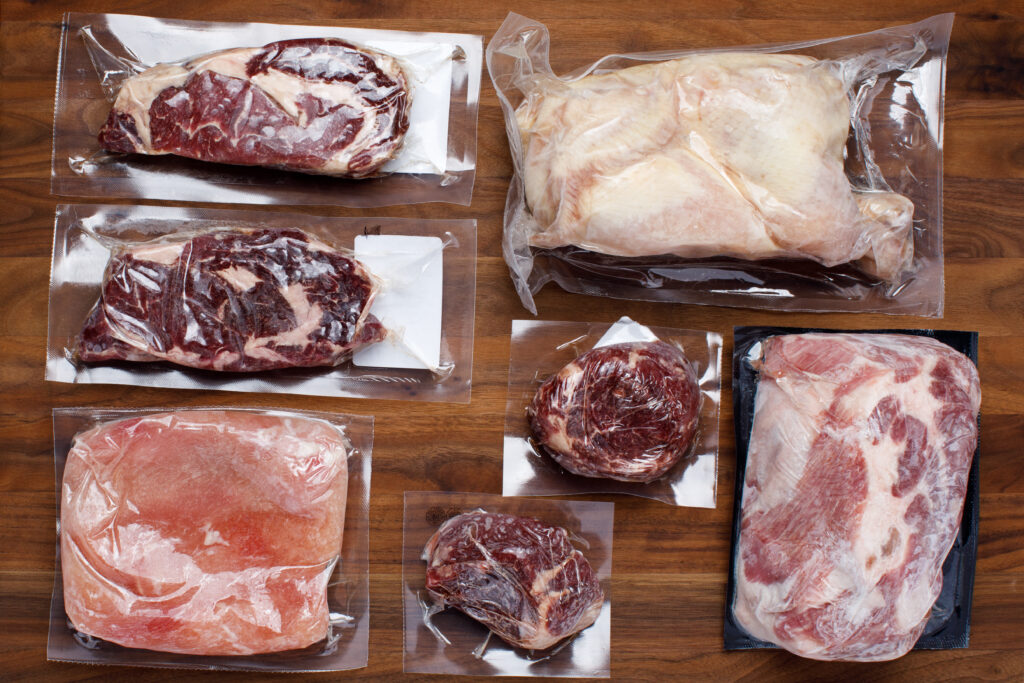
Local Farmer; Supplier Integrity
I would be remiss if I didn’t mention this aspect of choosing the best meat.
While it doesn’t technically have to do with your gut, it all kind of comes full circle.
When suppliers have integrity, raising their animals with pride, passion, and respect, the finished product mirrors that.
One thing I’m always looking for from a supplier standpoint when it comes to choosing the highest quality meats is animal welfare.
Pasture-raised meat is more humane.
Animals in factory farms and on CAFOs (Concentrated Animal Feeding Operation) spend their lives trapped in cages too small for them to move, never allowed outside or space to roam, forced to stand in their own waste… Only to be killed in ways that are stressful and often cruel.
Pasture-raised meat comes from farms where animals are allowed to live as nature intended: outside, and with space to roam.
The animals are slaughtered in ways that minimize discomfort (both mentally and physically).
More Info on CAFOs
CAFO stands for: Concentrated Animal Feeding Operation, a common practice in conventional farming. In fact, 90% of animal products you see in grocery stores are raised in CAFOs.
(CAFO), as defined by the United States Department of Agriculture (USDA), is, “an intensive animal feeding operation (AFO) in which over 1000 animal units are confined for over 45 days a year.”
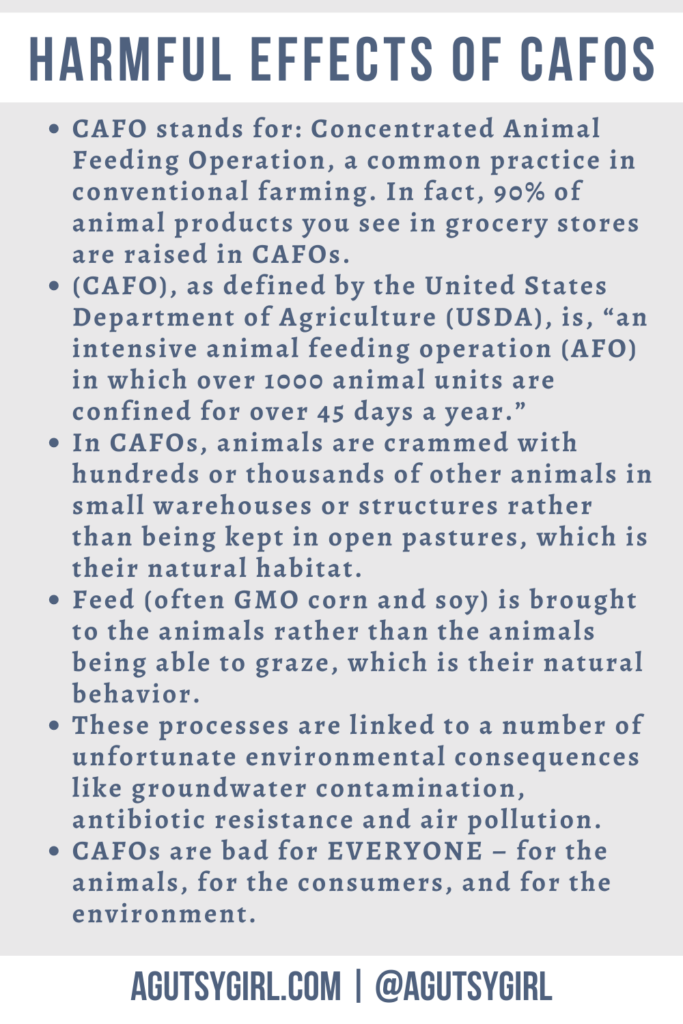
In CAFOs, animals are crammed with hundreds or thousands of other animals in small warehouses or structures rather than being kept in open pastures, which is their natural habitat.
Feed (often GMO corn and soy) is brought to the animals rather than the animals being able to graze, which is their natural behavior.
These processes are linked to a number of unfortunate environmental consequences like groundwater contamination, antibiotic resistance and air pollution.
CAFOs are bad for EVERYONE – for the animals, for the consumers, and for the environment.
Best Grass Fed Beef Online
Click HERE to save this article on the best place to buy grass fed beef for later.
![Best Place to Buy Grass Fed Beef [Online in 2025] agutsygirl.com #grassfed](https://agutsygirl.com/wp-content/uploads/2022/07/Best-Place-to-Buy-Grass-Fed-Beef-Online-in-2025-agutsygirl.com-grassfed-576x1024.png)
Okay, now that you have some context for why it’s important to choose premium meats, I want to share more about my personal favorite place -the best place for buying grass fed beef online.
Wild Pastures
Wild Pastures is a subscription service, membership discount club, dedicated to bringing members the highest quality, pasture-raised, domestic meats at the best possible prices.
They are committed to making better meats available and affordable for everyone.
Their animals are 100% pasture-raised by family farmers right here in the USA using rotational grazing practices on pastures free from pesticides and herbicides.
As a Wild Pastures member you receive the lowest prices possible on the highest quality meats – delivered to your doorstep every month.
Don’t want a membership? They also offer one-time deliveries vs subscription plans.
The Wild Pastures Difference
First, Wild Pastures pasture-raised meat is sustainable.
There are so many environmental consequences to the factory farming that a lot of meat is produced using:
- Topsoil depletion (the U.S. has lost more than half its topsoil in the past 100 years increasing our reliance on chemical fertilizers and pesticides)
- Fertilizer pollution (which is linked to increased rates of cancer in areas where fertilizer runoff pools and has caused a massive “dead zone” in the Gulf of Mexico)
- Huge demand for grain crop that requires tilling, fertilizers, and pesticides to grow
- Pollution from feedlots and factory farms: liquefied manure, noxious fumes, and antibiotic residue
In contrast, pasture-based farming is actually restorative to the environment:
- The natural rhythms of animals eating, walking and pooping on grasslands promotes plant growth
- Increased grasslands allow more grass to perform their “magic” trick: sucking up carbon released into the atmosphere by burning fossil fuels and safely storing it back underground
- Manure resumes its role as nature’s perfect fertilizer
{If you want a great book to read more on this topic, check out: Sacred Cow.}
![Best Place to Buy Grass Fed Beef [Online in 2025] 5 things Wild Pastures agutsygirl.com](https://agutsygirl.com/wp-content/uploads/2022/07/Best-Place-to-Buy-Grass-Fed-Beef-Online-in-2025-5-things-Wild-Pastures-agutsygirl.com_-683x1024.png)
Here are the top 5 things I love about Wild Pastures:
- No use of use synthetic fertilizers, pesticides, herbicides, hormones, or antibiotics. The use of hormones and any added hormones, as I’ve already discussed is not ideal.
- Domestically sourced. They work with small family farms in the United States to keep the meat products from shipping halfway around the world. This results in better quality from the small family farm who cares.
- Beyond sustainable. All their farmers utilize regenerative farming practices in order to raise healthy animals in a way that is beneficial to the ecosystem and environment. Every farmer they partner with practices regenerative agriculture, meaning they farm in a way that helps absorb carbon out of the atmosphere and back into the soil where it belongs.
- Grass fed + finished. Their cattle eat grass their entire lives… that’s it! They use rotational grazing which helps preserve and restore the health of the land while providing a more nutrient-rich, natural diet for the cattle.
- Taste! Don’t think I’m writing this whole article from a theoretical standpoint. No, I absolutely have tried a ton of their products. And they are incredible! Did I mention this is some of the most delicious meat I’ve had in years? Because the livestock are allowed to return to instinctual ways of freely grazing, they prepare for the feasting and famine times that would traditionally happen when they were in the wild – leading to fat development that creates beautiful marbling you wouldn’t get from conventional modern farming.
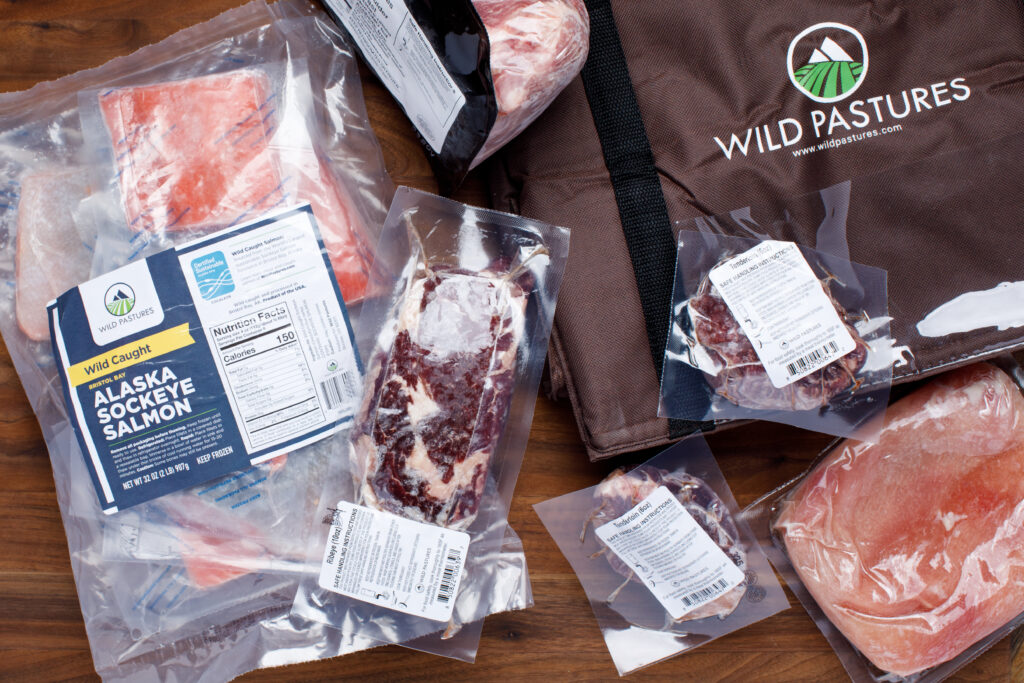
Just Grass-Fed Ground Beef?
Though this post has been primarily about the best grass fed beef, Wild Pastures includes far more than the best beef.
Here is a list of current offerings:
- Pasture-Raised Chicken. Their chickens spend their lives on pasture eating their natural diet of bugs and forage. Pasture-raised chicken is more nutrient-dense and richer in flavor.
- wings
- drumsticks
- thighs
- breasts
- whole, free range chicken
- Pasture-Raised Pork. Their pigs spend their lives on pasture foraging and exercising as they please. They are never confined and love to eat grass, turnips, squash, apples and more.
- sugar free bacon
- pork bratwurst
- steak, pork
- pork chops
- pot roast, pork
- ground pork
- breakfast sausage
- Wild-Caught Seafood. This is wild, sustainable seafood caught in the pristine waters of Bristol Bay, Alaska – home of the world’s largest and most sustainable salmon run.
- cod
- Grass-fed beef
- patties
- filet mignon
- NY strip steak
- stew meat
- fajita meat
- sirloin steak kabobs
- taco meat
- Italian beef sausage
- chorizo
- breakfast sausage
- 80% lean brisket
Some other miscellaneous items you can add on (many of which come-and-go; limited time basis) include:
- Beef liver
- Paleovalley Beef + Turkey Sticks
- Chicken back for homemade broth
- Pork Back Baby Ribs
- St. Louis Style Ribs
- Chicken Heart
- Chicken Liver
How This Meat Delivery Service Works
It’s super simple to order from Wild Pastures online store via their online meat delivery services.
- First, you’ll sign up HERE (click the orange button, “Customize Your Order”). Remember, it’s not just your first order that you’ll save 20%, but every single box thereafter as well. It’s 20% off for life. You’ll enter in your email, state, and zip code. This is to ensure that they are indeed shipping to your location. And remember, I live in a super small town in Southern Minnesota. If they ship here, they will surely ship where you live!
- Then, decide whether you want 20% off for life plus free shipping or if you’d rather just order one box at a time (p.s. even if you do this, shipping is only $4.99).
- Customize your order. Now it’s time to customize your order, choosing only the things you want. Each choice you make will lead to more choices (i.e. number of pounds, etc.).
- Get your delivery. Your custom box of meat comes from American regenerative farms to your doorstep packaged in compostable, earth-friendly packaging.
- Cook, eat and enjoy!
Here is a video of me showing you exactly how the ordering process online works, and how easy it is to order today!
While the total cost might seem a little more than your average grocery trip, think about these:
- No impulse buys at the grocery store.
- Huge quantity (mine was 25 pounds worth!) that will last in your freezer for quite some time.
- Supporting small business.
- A ton of different options, right at your finger tips.
Who is Behind Wild Pastures?
Remember episode 27 of the A Gutsy Girl podcast show when I brought on Autumn Smith and we discussed all things healing with food?
Well, it’s her.
Autumn and her husband Chas founded the company (just as they did Paleovalley).
For most of her life, Autumn suffered from IBS and other gastrointestinal issues, always feeling bloated after meals, experiencing acne breakouts and low energy levels.
After years of doctors visits and many failed treatments, she and Chas decided to take things into their own hands.
They researched multiple dietary protocols that could support her IBS and decided to try eliminating inflammatory and gut disrupting foods.
To their surprise, Autumn’s symptoms vanished. In just 30 days! It was then that they discovered the power of food as medicine.
They were amazed with their results and were inspired to launch the brand, Paleovalley; a whole food and supplement company that’s devoted to providing high quality, sugar/gluten/dairy/GMO-free snacks that always prioritize health over profit.
Chas and Autumn’s journey did not end there.
As they were sourcing the highest quality meat for Paleovalley’s 100% Grass Fed and Finished Beef Sticks, they got to take an inside look at regenerative farming.
They learned that certain, conscious farmers were using ruminant animals (like cows) to build soil health and remove carbon dioxide from the atmosphere in order to reverse CO2 pollution.
They also learned that according to the Food and Agriculture Organization, we only have 60 years of topsoil left!
Meaning their 5-year-old son Maverick’s generation would be left with a nutrient deficient food supply unless the health of the soil was restored.
Instead of focusing on the problem, Chas and Autumn decided to become a part of the solution.
With their son as their “why,” they created Wild Pastures.
A way to support domestic farmers using regenerative practices while also offering near wholesales prices to the consumer by cutting out the middleman.
Chas and Autumn do all of this by partnering with small farms, NEVER cutting corners, and using a membership model to deliver pasture-raised beef, pork, and chicken right to your front door.
As Chas put it,
If Costco and farmer’s markets got together and had a baby it would be called Wild Pastures. What we’re trying to do is work directly with farmers, help them grow their operations without cutting corners, and buy in bulk so we can pass those savings to our members without them having to buy huge quantities at a time.
We want to replace conventional and deceptively labeled meats such as ‘free-range’ or ‘natural’ where the wording looks attractive but in practice, it’s only a small step up from factory farming. Pasture-raised meats, in the truest sense of the word, are more nutritious, contain far more vitamins, minerals, and antioxidants, and they are environmentally restorative.
Pasture-raised meats of this quality are extremely difficult to find and we want to bring them back in a big way.
The Excellent Choice
As we already went through our first Wild Pastures box, I am confident that their individual cuts of meat are top quality and that they are the best place to buy grass fed beef online.
I am so excited to be able to share all of this information with you because I’m constantly being asked,
Where do you buy your meat?
Because not everyone (barely anyone?) has access to fresh, organic beef and other meats from local farms that are easily picked up from farmers markets, I am so grateful for the hard work of people like Autumn, Chas and the team at Wild Pastures.
I hope you’ll love it just as much!
If you liked this post, you might also enjoy:
Affiliate disclosure: The Wild Pasture products and links in this post are affiliates. When you purchase anything from Wild Pastures, you will save a hefty amount and I make a small commission. This is part of my business that helps keep this website afloat for me to bring you the information for free. And I’m so grateful for you. Learn more about Wild Pastures HERE.
Xox,
SKH
🤰 bloating be gone! weight loss through optimal gut health for women
💃ʜᴇᴀʟ ʏᴏᴜʀ ɢᴜᴛ. ʜᴇᴀʟ ʏᴏᴜʀ ʟɪfe.
🫶🏻 founder gutbyome.com

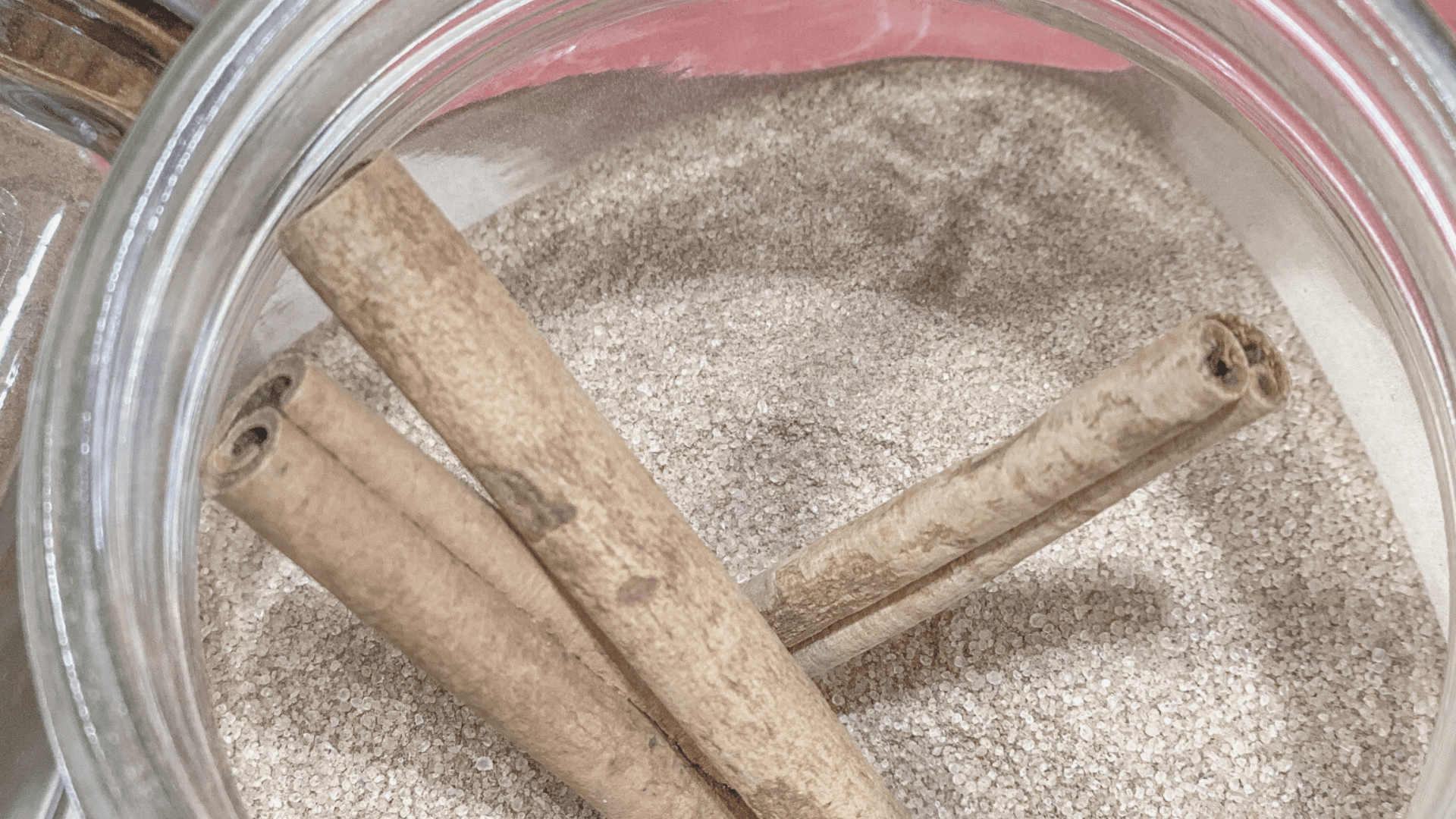
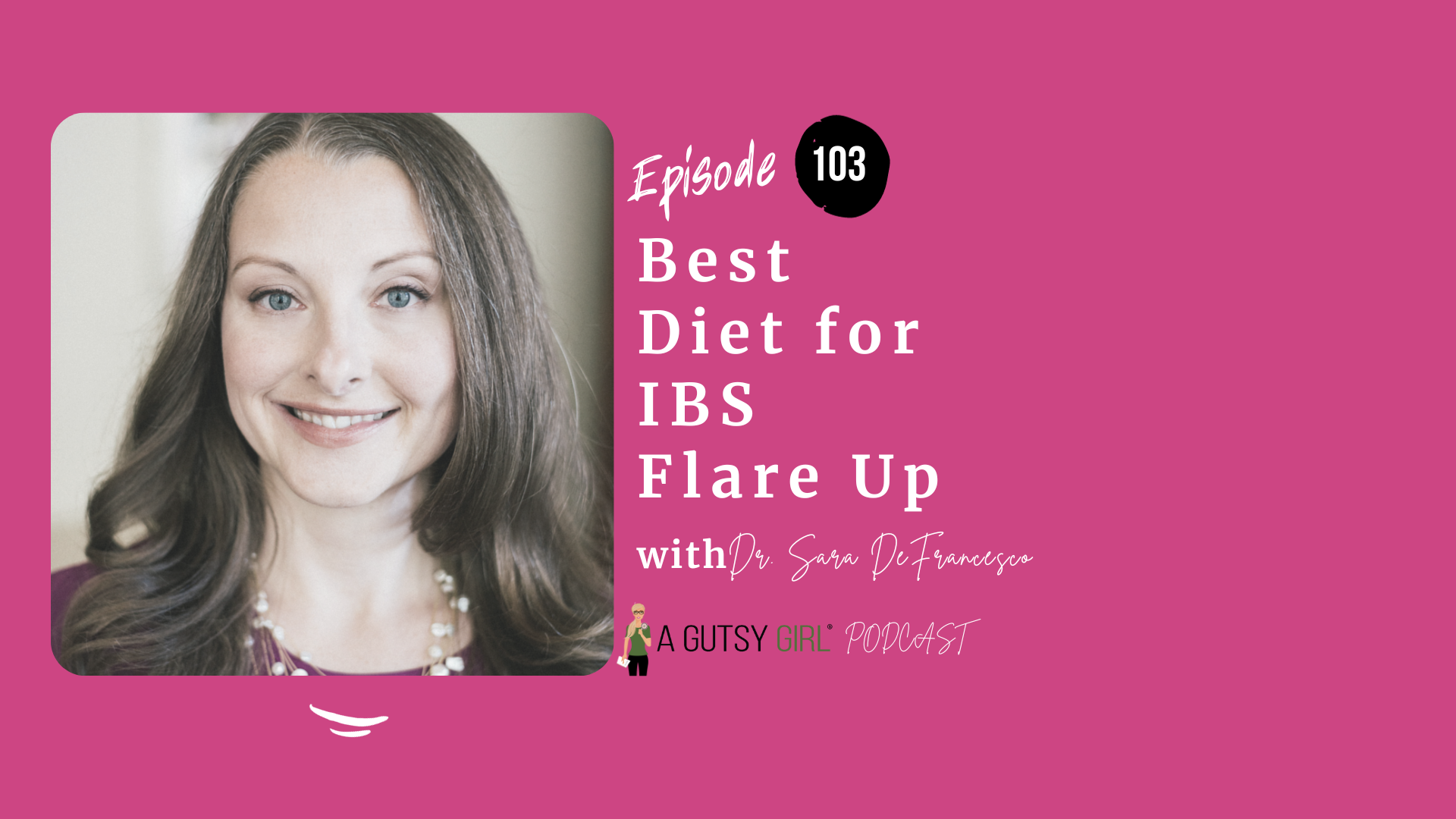
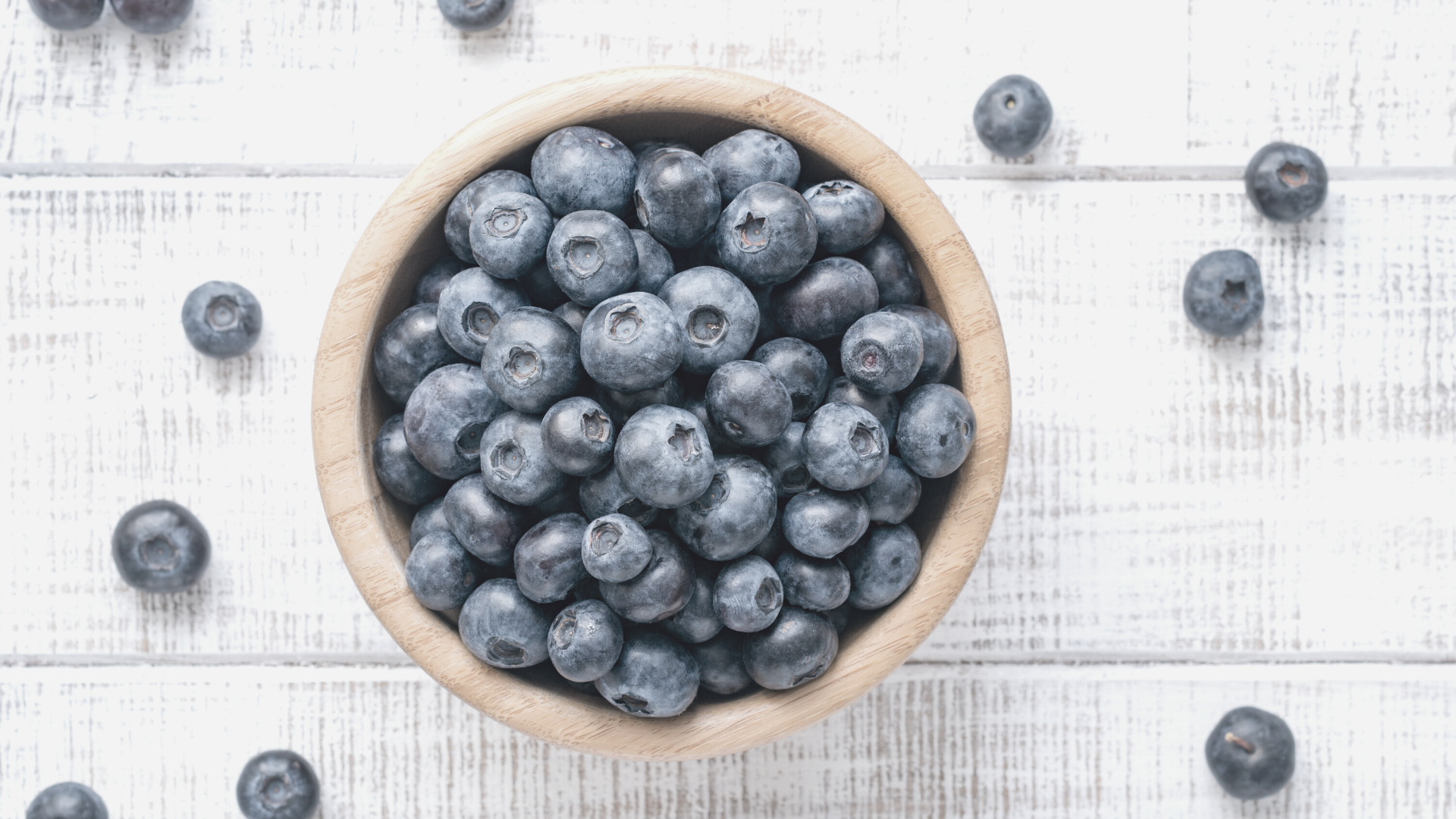
![What is a Health Coach [and how is an RD different?]](https://agutsygirl.com/wp-content/uploads/2020/05/food-nutrition-featured-agutsygirl.com_.png)

